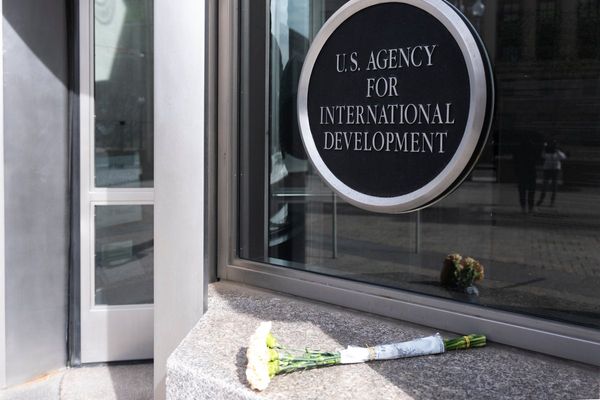
North Korea broke its silence on Russia's invasion of Ukraine on Monday, blaming the "hegemonic policy" and "high-handedness" of the United States and the West.
Ceasefire talks between Russian and Ukrainian officials began on the Belarusian border on Monday as Moscow faced U.S.-led economic sanctions four days after its invasion of Ukraine, which has been roundly denounced in the West.
In its first official statement on Russia's attack, the North Korean Foreign Ministry said that the West was guilty of "abuse of power".
"The root cause of the Ukraine crisis totally lies in the hegemonic policy of the U.S. and the West, which enforce themselves in high-handedness and abuse of power against other countries," the North's official KCNA news agency said, citing an unnamed foreign ministry spokesperson.
The dispatch came just a day after North Korea, engaged in stalled denuclearisation talks with the United States, fired a missile in what could be its first test after a record number of launches in January.
Washington has called for a resumption of talks on dismantling Pyongyang's nuclear and missile programmes, but North Korea has rejected the overtures, demanding U.S. "hostile policy" and "double standards" be dropped.
Pyongyang has also threatened to restart testing its longer-range missiles and even nuclear weapons.
The United States has vowed to introduce export controls designed to cut Russia off from semiconductors and other advanced technology crucial to its weapons development and biotechnology, and block some Russian banks from the SWIFT international payments system.
North Korea accused Washington and its allies of "ignoring Russia's reasonable and legitimate demands" for guaranteeing legally backed security assurances.
They "systematically undercut the European security environment by pursuing the North Atlantic Treaty Organisation's expansion towards the east, including blatantly deploying attack weapons systems," KCNA said.
"The reality proves once again that as long as the U.S. unilateral and double-dealing policy that threatens a sovereign country's peace and safety exists, there will never be peace in the world."
(Reporting by Hyonhee Shin; Editing by Nick Macfie)







